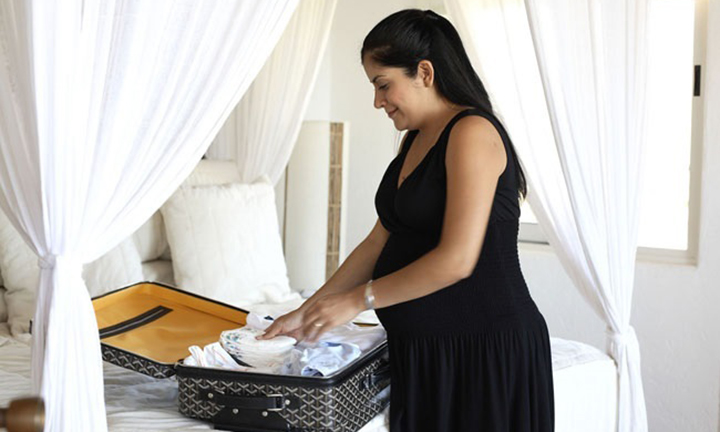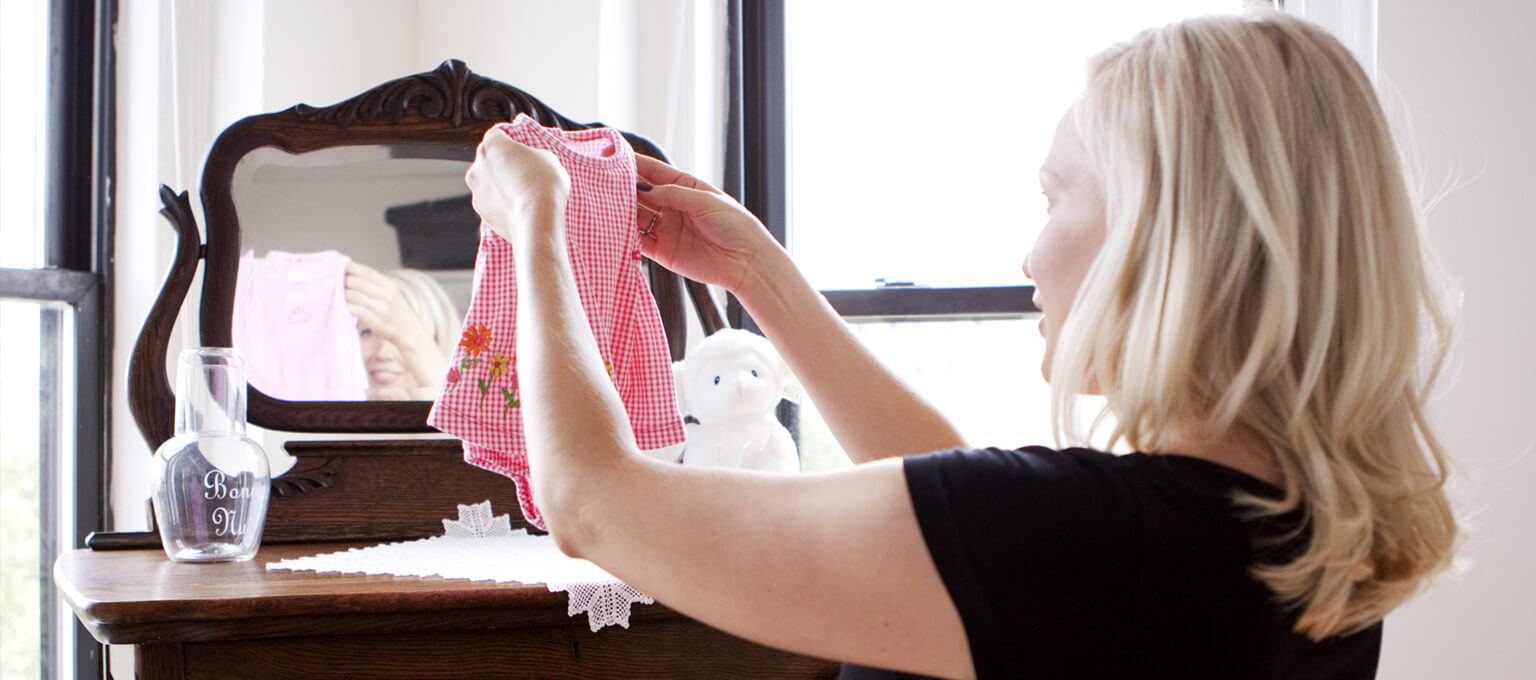
What Is a Doula and Should You Hire One?


When it comes to childbirth, having extra physical and emotional support might be something you find useful. During pregnancy, some pregnant people hire a specially trained birthing coach, called a doula, for extra assistance before, during and/or after birth. Of course, you don’t have to have a doula. The choice is entirely yours. To help you think it through, read on to learn more about the role of a doula, what the benefits might be, and what questions to ask when hiring a doula.
What Is a Doula?
The definition of a doula is a person trained to advise, inform, and offer emotional and physical comfort to a pregnant person before, during, and after the birth of their child. The word doula comes from the Greek word doulē, the meaning of which translates to female helper or maidservant. Of course, the doula you hire is definitely not a servant, and may or may not be female, but they are there to help and guide you.
It’s worth noting that a doula is not a trained medical professional. They do not replace your healthcare provider. However, they can offer care and support that a provider cannot, which we explain in this article.
What Does a Doula Do?
The best way to understand the role of a doula is to know the different types of support they can provide. A doula isn’t limited to just helping you during labor and the birth of your baby. They can lend advice during your pregnancy and can continue to mentor you after your baby is born. It’s up to you how and when you would like to utilize your doula’s expertise.
If you’re wondering “What does a doula do during labor, pregnancy, or beyond?” These are some examples of the support doulas can provide:
Physical comfort. They can provide a gentle touch or a massage during labor, or even just hold your hand. They can also help you use breathing techniques.
Emotional support. Whether you need reassurance, comfort, or encouragement, your doula can provide it. They’re also there to just listen, if that’s what you need.
Information. A doula’s experience comes in handy when you need information about what happens during labor, explanations of certain procedures, and what to look forward to in the postpartum period.
Communication. They can serve as a liaison between you (and your family) and the hospital staff. Sometimes it may be difficult for your family members to communicate with your doctor during your labor. Whereas your doula can serve as the point person, and help ease your family’s nerves while relaying information about you and your baby’s condition.
Guidance. A doula can also provide support to your partner and loved ones when needed. Whether you have a nervous father on hand, or an anxious mother, your doula can help them in an emotional capacity, too.
Assistance with feeding your baby. If you’ve chosen to breastfeed your baby, a doula can help you navigate the challenges of breastfeeding, including breast discomfort (for example, if you get the breast infection mastitis), getting your baby to latch, and finding comfortable breastfeeding positions. A doula can also answer your questions if you’re using formula. For example, when and how much to give.
Assistance with caring for your baby. If you’d like it, the role of a doula can also extend to helping show you things like how to give your baby their first bath, how to soothe a crying baby, how to care for your baby’s umbilical cord stump, and much more.
It's important to check your hospital’s policies on doulas beforehand to see if they allow doulas to attend deliveries.
Benefits of Having a Doula
Some studies show that the emotional support of a doula can result in a more positive labor and postpartum experience for some pregnant people. For example:
Shortened labor time
A lesser chance of needing pain relief medication during labor
Reduced incidence of cesarean section
A decrease in anxiety and/or postpartum depression
Improved communication between healthcare providers and parents
A more positive experience for parents post-delivery.
These studies make some great claims, but a doula is not for everyone. If you’re on the fence about hiring a doula, keep in mind that having one isn’t a requirement, and many pregnant people prefer not to use a doula at all. If you’re still unsure, it could be a good idea to chat with your healthcare provider about it. They may have some good insights on whether a doula could be right for you. Ultimately, the decision is yours.
How Long Does a Doula Stay After Birth?
If you hire a doula who covers postpartum care, it’s usual for them to help you in the first few weeks or months after the birth of your baby. The length of time depends on your needs and preferences, so discussing this with your doula is a good idea. You can also reach out to them in the postpartum period if you realize you need more help than you initially thought.
What’s the Difference Between a Doula and a Midwife?
When it comes to what the difference is between a doula vs. a midwife, you should not be thinking in terms of either/or. There is a major difference between what a doula offers and what a midwife can help you with. Think of a doula as someone there to provide you with lots of support, kind of like a birthing cheerleader. They can’t provide you with any medical advice but they can help you find the right healthcare provider or give you info on where to go for expert help. A midwife is a specially trained and licensed professional who works closely with your provider to directly assist you during your pregnancy, labor, and delivery. Unlike a doula, a midwife is a registered nurse who has earned a master’s degree in nursing with a specialization in midwifery.
Do You Need a Doula?
Receiving the best care during pregnancy is a top priority for many parents, therefore, you may be wondering “Do I need a doula?” or “Why should I hire a doula?” There’s no exact answer to these questions, but we’ll weigh up some reasons why you may or may not choose this extra support during pregnancy and beyond.
Deciding whether to hire a doula depends on what kind of support and birth experience you are seeking. The necessity of a doula depends on your circumstances and preferences. Those who might find a doula particularly beneficial include first-time parents, members of underrepresented groups, those who have experienced trauma in previous births, or individuals aiming for a natural, unmedicated labor. Cost and availability can be barriers, as many insurance plans do not cover doula services. However, some community organizations offer doula services at reduced costs or even for free, particularly to those in high-need populations. While a doula is not a medical necessity, you may find the support invaluable for achieving a positive childbirth experience. If you’re considering a doula, it may be helpful to look at the benefits listed in this article and discuss with your healthcare provider to see how a doula could complement the medical care you’ll receive during childbirth.
Hiring a Doula
If you’ve decided a doula may be a good option for you, think about when you’d like to start working with one, and start researching and interviewing potential doulas early to give yourself plenty of time to find the right one.
So, how do you get a doula? The association of doulas, DONA International, which also offers doula certification training, is a great starting point. DONA International even has a doula search tool you can try to help find one in your local area.
Alternatively, ask your provider, childbirth class instructor, midwife, and even family members or friends for recommendations. You might also want to contact your birthing center or hospital for a referral.
Before speaking to potential doulas, you may want to ask your insurance provider if a doula is covered by your insurance. Oftentimes doulas are not covered. It might also be a good idea to ask your healthcare provider whether you can have a doula with you in the hospital or birthing center, as there may be hospital policies or guidelines about the use of a doula that you may need to be aware of. And, if you’re having a birth plan, you might want to add your chosen doula’s contact information, as well as an outline of their role during your labor and delivery. Don’t forget to share a copy with your doula, as well.
Questions to Ask When Hiring a Doula
The key is to choose a doula you feel comfortable with. Once you’ve found a few options, it’s worth having a discussion with each of them.
You might consider asking the potential doula about their
training, skills, and experience
how many births they have attended
their philosophy when it comes to labor and childbirth
how they feel about your labor and birthing preferences
what they typically do for parents-to-be during labor and childbirth
what various other services they may provide
and, of course, their fees.
When meeting with a doula, it’s also a good idea to discuss any concerns you may have about your pregnancy, and ask any other questions you may have. And, of course, you should just see how you feel around the doula—after all, you two will work closely together at a really important and personal time.
FAQS AT A GLANCE
A doula provides emotional and physical comfort and support before, during, and after labor and childbirth. A doula can also provide some information and guidance, and can sometimes be a go-between between you and the hospital staff.
The Bottom Line
Whether you decide to have a doula during your pregnancy is a personal choice, and only you can know what would make you feel most comfortable. Although a doula is useful for some pregnant people, it’s not for everyone. The goal is for you to feel as empowered and as relaxed as possible during pregnancy, labor, childbirth, and beyond.
While you’re here, take a look at our Go-To Pregnancy Guide to help you navigate this special journey. And, to start earning rewards for your purchases made in preparation for your baby’s arrival, download the Pampers Rewards app now.
How We Wrote This Article The information in this article is based on expert advice found in trusted medical and government sources, such as the American Academy of Pediatrics and the American College of Obstetricians and Gynecologists. You can find a full list of sources used for this article below. The content on this page should not replace professional medical advice. Always consult medical professionals for full diagnosis and treatment.
- American College of Obstetricians and Gynecologists. Your Pregnancy and Childbirth: Month to Month, 6th ed. (Washington, DC: American College of Obstetricians and Gynecologists, 2015).
- American Pregnancy. “Having a Doula.”
- Cleveland Clinic. “Doula.”
- Cleveland Clinic. “Nurse Midwife vs. Doula: Who Does What?”
- DONA International. “Benefits of a Doula.”
- March of Dimes. “Doulas Can Improve Care During and After Childbirth.”
- Merriam Webster: Definition of doula
Read more about Pregnancy
Related Articles
Join a World of Support
through Pregnancy and Parenthood.
TRACK WITH TOOLS
LEARN WITH EXPERTS
GET REWARDED













